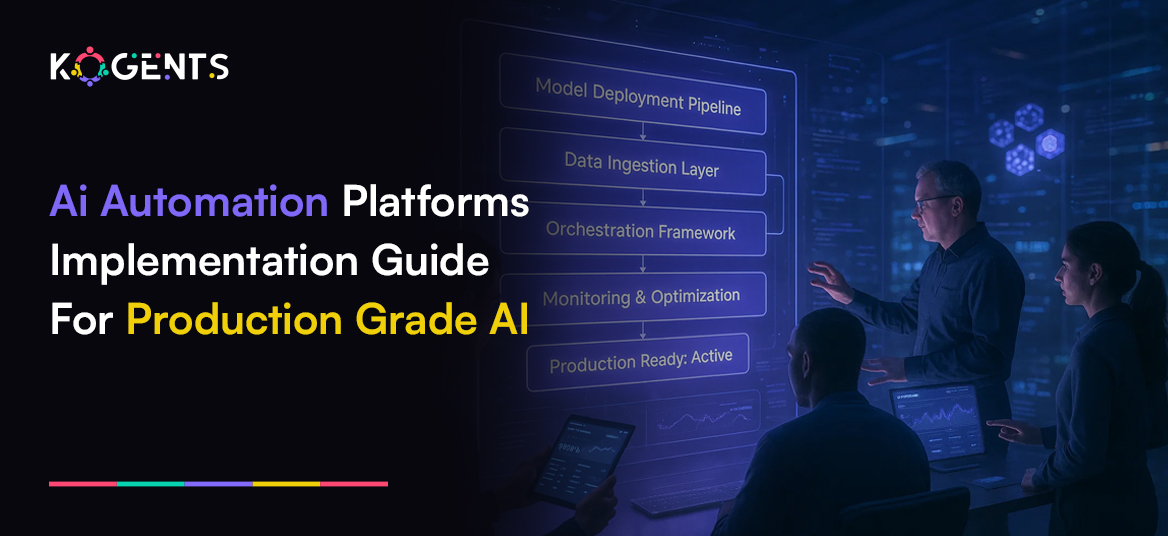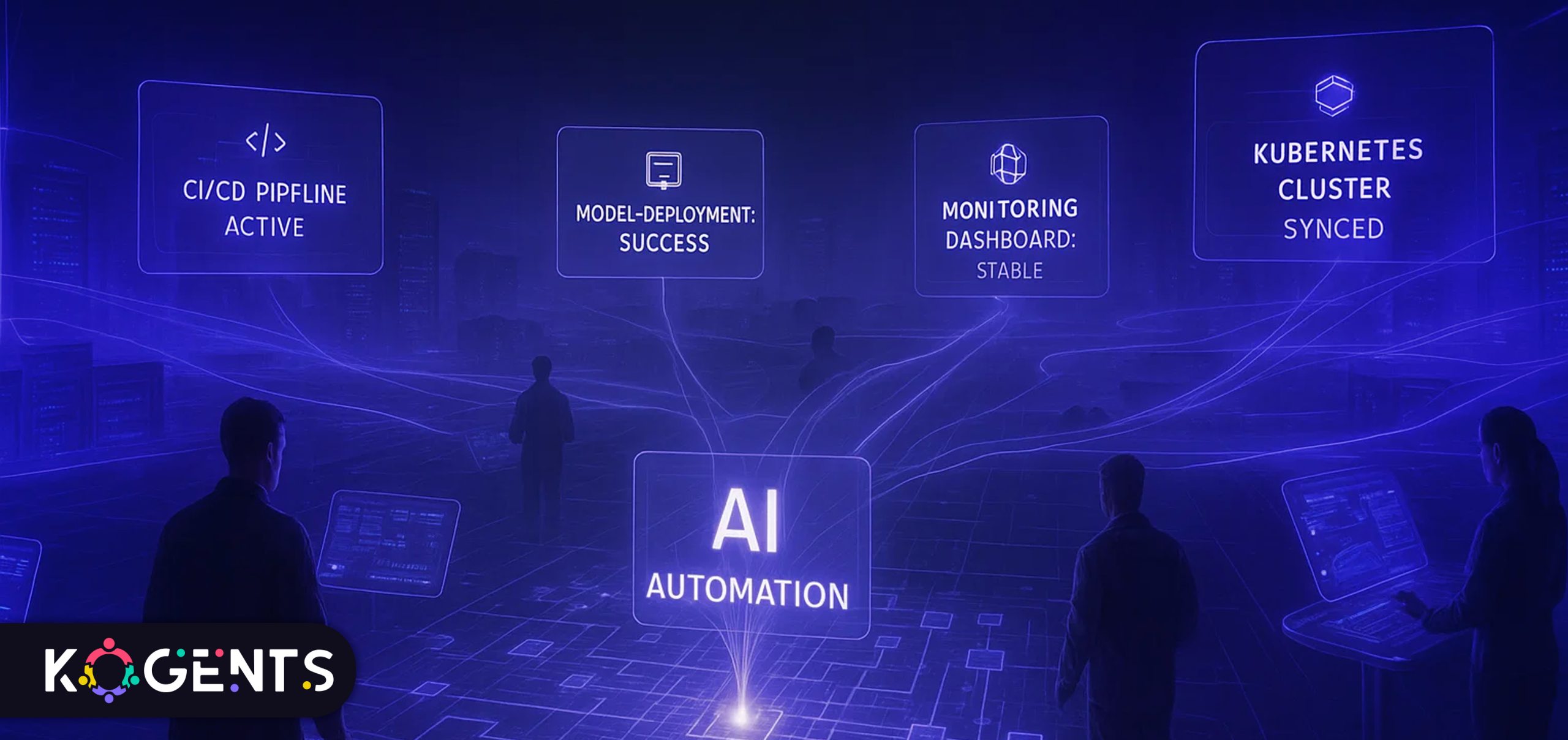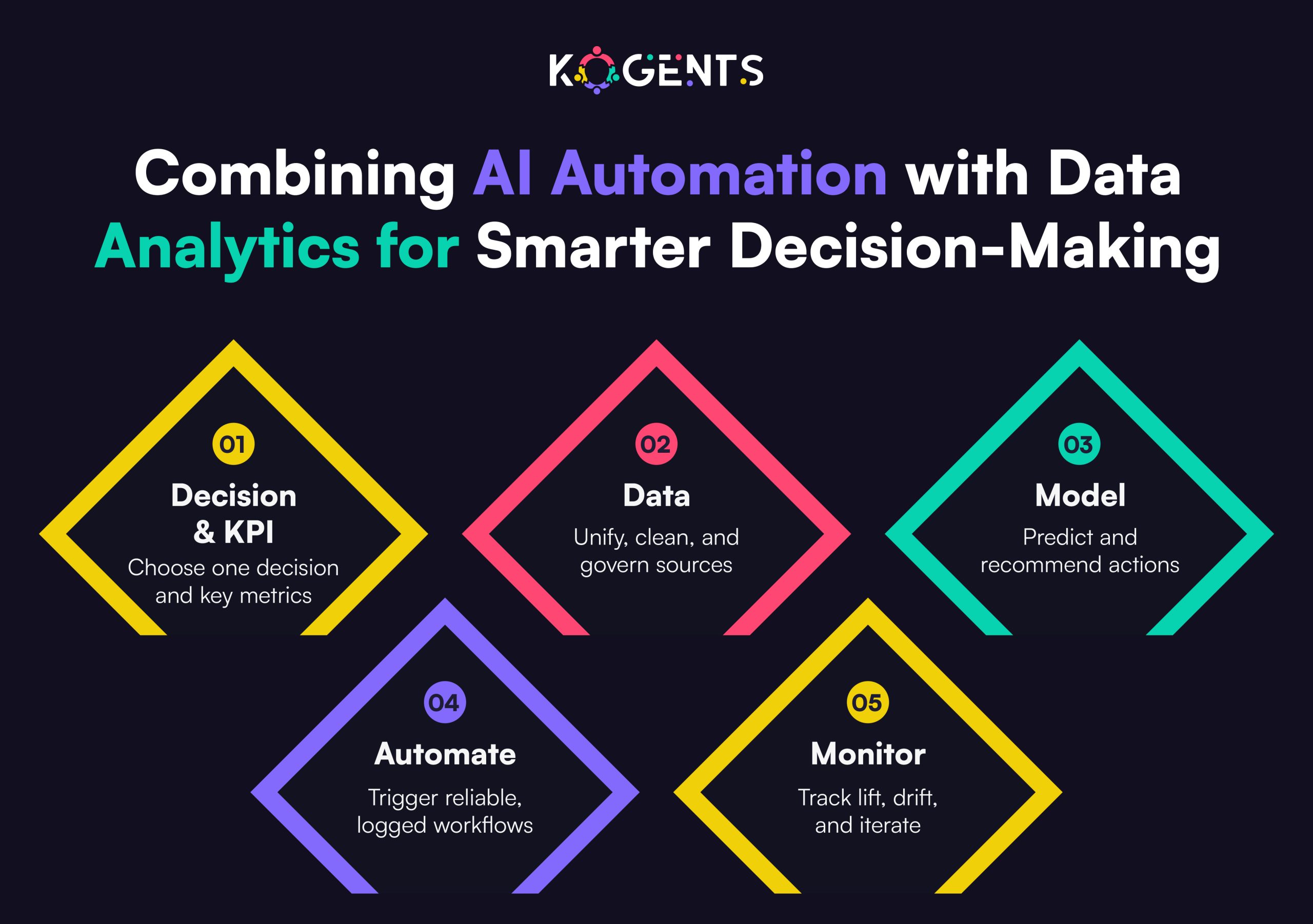AI Automation Platforms Implementation Guide for Production-Grade AI

Summary:
Imagine a world where your business runs on autopilot, tasks get done faster, decisions are smarter, and productivity soars. AI automation platforms are making this a reality.
These game-changing technologies are not just reshaping workflows but transforming entire industries.
From AI-driven automation systems to robotic process automation (RPA), businesses are tapping into AI automation tools to eliminate inefficiencies and unlock unprecedented levels of growth.
AI automation software is no longer a luxury but a necessity for businesses that wish to stay ahead of the curve.
The advent of intelligent automation has streamlined operations, empowered employees, and allowed companies to scale without compromising quality or efficiency.
However, implementing AI automation in a production-grade environment requires careful planning, thoughtful integration, and a deep understanding of the tools at hand.
This guide explores how businesses can successfully implement AI-driven automation systems to unlock new potential, streamline operations, and achieve digital transformation.
Whether you’re considering Robotic Process Automation AI (RPA) or a more comprehensive AI workflow automation solution, this post will provide a detailed roadmap to successfully integrate these technologies into your business operations.
Key Takeaways
- AI automation platforms enable businesses to automate repetitive tasks, enhance operational efficiency, and reduce human error.
- A successful implementation of AI-driven automation systems involves careful planning, choosing the right tools, and designing scalable AI workflows.
- AI-powered automation platforms offer a wide range of use cases across industries, from finance and healthcare to manufacturing and retail.
- Overcoming challenges such as resistance to change and data security concerns is crucial for a smooth implementation process.
- The future of AI workflow automation is promising, with continuous advancements in machine learning and cognitive automation paving the way for more intelligent and adaptable systems.

What are AI Automation Platforms?
At their core, AI automation platforms are systems that integrate artificial intelligence (AI) into business operations to automate complex tasks and processes.
These platforms combine machine learning, data processing automation, and robotic process automation (RPA) to create intelligent systems that can adapt to dynamic environments, learn from experience, and perform tasks without human intervention.
Unlike traditional automation tools, which simply follow pre-programmed rules, AI-based automation solutions leverage algorithms to improve over time, ensuring that automation becomes more efficient and accurate as the system learns from past data and user interactions.
Key Components of AI Automation Platforms
- Machine Learning Models: These models learn from data to optimize decision-making and predict outcomes.
- Robotic Process Automation (RPA): RPA tools automate repetitive tasks such as data entry and processing.
- Natural Language Processing (NLP): NLP enables AI platforms to understand and process human language for tasks like customer support or content generation.
- Analytics and Reporting: These tools provide insights into the performance of automation, identifying opportunities for further optimization.
| Component | Description | Business Benefit |
| Machine Learning Models | Learn from data to optimize decision-making and predict outcomes. | Enables smarter, data-driven business insights and forecasting. |
| Robotic Process Automation (RPA) | Automates repetitive tasks such as data entry and processing. | Saves time, reduces human error, and improves operational efficiency. |
| Natural Language Processing (NLP) | Allows AI to understand and process human language for customer support or content generation. | Enhances customer interaction through chatbots and virtual assistants. |
| Analytics and Reporting | Provides insights into automation performance and identifies optimization opportunities. | Improves transparency, helps measure ROI, and supports continuous improvement. |
The Role of AI in Business Automation
How AI Drives Business Transformation?
The impact of AI on business automation cannot be overstated. By automating mundane tasks, businesses can free up employees to focus on higher-value activities, improving both productivity and job satisfaction.
With the right AI tools, organizations can also achieve significant cost savings, reduce errors, and improve decision-making speed.
Example: sales AI automation tools streamline lead scoring, outreach, and follow-ups by leveraging predictive analytics to prioritize high-value prospects.
Moreover, AI agents in marketing predict customer behavior shifts, navigate lead nurturing, and deliver in real-time engagement across digital channels.
Types of AI Automation Tools
Robotic Process Automation (RPA) AI
- RPA AI tools can automate rule-based tasks, such as data processing and document handling.
- These tools are especially useful in industries where large volumes of repetitive tasks are common.
AI Workflow Automation Tools
- These platforms automate end-to-end business processes by managing workflows that involve multiple steps and systems.
- These tools are often used in industries like finance, healthcare, and manufacturing.
AI-Driven Business Process Automation Systems
- These systems leverage AI to make decisions and optimize workflows automatically.
- They are ideal for organizations that require complex decision-making and continuous improvement in business operations.
Implementing AI Automation Platforms: A Step-by-Step Guide
Pre-Implementation Planning
Before diving into AI automation, it’s essential to define the scope of the project.
- What processes do you want to automate?
- What are your business goals?
- Answering these questions will guide you in choosing the right AI automation tools and platforms.
Building the Right Infrastructure for AI Automation
- The infrastructure you choose should align with the scale of your operations and the complexity of the automation.
- For smaller businesses, cloud-based AI tools are often the best choice, as they are scalable and cost-effective.
- Larger enterprises may require on-premise solutions that offer more control.
Pilot Testing and Scalability Considerations
Once you’ve selected the appropriate AI automation software, start with a pilot program.
This allows you to test how well the system integrates with existing workflows and ensures that any issues can be addressed before full deployment.
Building a Business Case for AI Automation Platforms
- Why AI Automation?: For businesses considering AI automation, the first step is often justifying the investment.
Note: In this section, we can focus on the ROI of marketing AI automation platforms, supported by real-world examples, industry data, and case studies.
- Evaluating the Impact: A discussion on how businesses can assess the potential cost savings, improved efficiency, and enhanced decision-making that AI automation brings to the table.
Note: This will include insights into identifying the key performance indicators (KPIs) for successful AI implementation.
- Cost-Benefit Analysis: Highlighting the direct and indirect benefits businesses can expect and showing that the value of automation outweighs the initial costs.
Highlight: We can incorporate real statistics on time savings, error reduction, and labor cost reduction.

The Ethical and Human Impact of AI Automation
- Job Displacement vs. Job Transformation: A critical aspect of AI automation is the effect on the workforce.
Learn: In this section, we explore the ethical implications of AI, how it affects employees, and the need for businesses to address potential job displacement.
Rather than replacing human workers, AI often changes roles, requiring employees to upskill and take on more strategic tasks.
- Ensuring Fairness and Transparency: We’ll also look into how businesses can ensure that their AI systems are ethically designed and that transparency is maintained in automated decisions.
- Human-AI Collaboration: While AI automates routine tasks, this section will emphasize the importance of human-AI collaboration and how businesses can strike a balance between technology and human touch to maximize productivity and creativity.
Case Studies of Successful AI Automation Implementations
Case Study 1: UiPath AI Automation in Finance
UiPath is a leader in Robotic Process Automation (RPA) and has been pivotal in automating finance operations for businesses.
- One notable implementation was at a major bank, where UiPath helped automate the reconciliation of financial statements.
- This led to a significant reduction in processing time and errors.
Case Study 2: Automation Anywhere in Healthcare
- Automation Anywhere’s AI automation tools were deployed in a healthcare organization to streamline patient data entry and processing.
- The automation of administrative tasks freed up healthcare professionals to focus more on patient care, improving overall service delivery.
Case Study 3: Blue Prism in Manufacturing
Blue Prism’s intelligent automation platforms were used to automate the manufacturing process at a global electronics company.
By automating inventory management, the company reduced downtime and improved supply chain efficiency.
Challenges In Implementing AI Automation
- Resistance to Change: Employees may fear job displacement or struggle to adapt to new AI-driven workflows.
- Data Quality and Integration: Inconsistent or siloed data hinders AI accuracy and seamless automation performance.
- Data Security and Privacy: Protecting sensitive information and ensuring compliance with regulations like GDPR is critical.
- High Implementation Costs: Developing, training, and maintaining AI systems require significant financial and technical resources.
- Measuring ROI: Determining the tangible benefits of automation versus costs remains complex, especially when evaluating long-term productivity and efficiency gains.
Conclusion
AI automation platforms are transforming industries across the globe, unlocking new possibilities for efficiency, cost savings, and innovation.
By carefully selecting the right AI tools, planning implementation, and navigating challenges, businesses can successfully integrate AI-driven automation systems into their operations, ensuring long-term success and scalability.
As businesses look to the future, the role of AI in automation will only continue to grow.
AI-powered automation solutions provided by Kogents.ai will become more capable of solving your increasingly complex business problems, driving the next wave of digital transformation.
FAQs
What are AI automation platforms?
AI automation platforms use artificial intelligence to automate business tasks and processes, improving efficiency and reducing human error.
How do AI automation platforms work?
These platforms utilize machine learning, data analytics, and robotic process automation (RPA) to automate workflows, making decisions and optimizing tasks based on data-driven insights.
What industries benefit most from AI automation platforms?
AI automation platforms have been widely adopted in finance, healthcare, manufacturing, and retail, where they streamline repetitive tasks and optimize operations.
What are the main benefits of AI in business automation?
Key benefits include reduced operational costs, improved productivity, enhanced decision-making, and the ability to scale operations efficiently.
How do I choose the right AI automation software for my business?
Consider factors such as scalability, integration capabilities, ease of use, and support for your specific industry needs when selecting AI automation software.
What are some common challenges in implementing AI automation?
Common challenges include data security concerns, employee resistance to change, and the complexity of integrating AI tools with legacy systems.
Is AI automation suitable for small businesses?
Yes, AI automation platforms can be scaled to meet the needs of small businesses, offering cost-effective solutions for automating processes.
How does AI compare to traditional automation tools?
Unlike traditional automation, AI tools can adapt and improve over time through machine learning, offering more flexibility and intelligence in task automation.
What are the costs associated with implementing AI automation?
Costs vary depending on the platform and the complexity of implementation. However, the ROI from AI automation often outweighs the initial investment.
What is the future of AI automation?
The future of AI automation involves continued advancements in machine learning, cognitive automation, and AI-driven insights, leading to even more intelligent and adaptable systems.

Kogents AI builds intelligent agents for healthcare, education, and enterprises, delivering secure, scalable solutions that streamline workflows and boost efficiency.